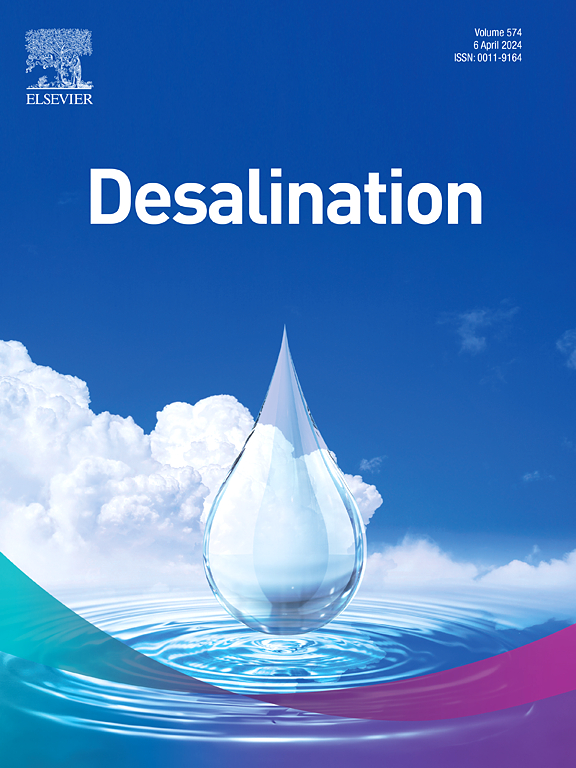Gel-based evaporators for solar desalination of high concentration brines
IF 8.3
1区 工程技术
Q1 ENGINEERING, CHEMICAL
引用次数: 0
Abstract
Interfacial solar evaporation has gained attention in seawater desalination and wastewater treatment due to its high efficiency, environmental sustainability, and low cost. However, salt buildup on the evaporator surface, clogging water transport channel and reduction in effective evaporation area result in decreased evaporation performance. Notably, reducing the salt accumulation of evaporators through strategies such as surface engineering, hierarchical structures, and capillary-driven designing is vital to achieving high solar-to-vapor energy conversion efficiency and optimizing long-term stability. This review explores the salt management and desalination stability of gel-based evaporators for solar desalination of high concentration brines. Improving the stability of the desalination process is suggested by refining the hierarchical structures engineering of the gel-based evaporator, modifying the surface wetting characteristics (hydrophilicity/hydrophobicity), and choosing an appropriate polyelectrolyte to efficiently regulate salt deposition on the surface. Furthermore, the review highlights opportunities and outlines key considerations for the practical application of gel-based evaporators.

用于太阳能脱盐高浓度盐水的凝胶基蒸发器
界面太阳能蒸发以其高效、环保、低成本等优点在海水淡化和污水处理领域受到广泛关注。蒸发器表面积盐、输水通道堵塞、有效蒸发面积减小,导致蒸发性能下降。值得注意的是,通过表面工程、分层结构和毛细管驱动设计等策略减少蒸发器的盐积累对于实现高太阳能-蒸汽能量转换效率和优化长期稳定性至关重要。本文综述了凝胶基蒸发器在太阳能脱盐高浓度盐水中的盐管理和脱盐稳定性。建议通过细化凝胶基蒸发器的层次结构工程,改变表面润湿特性(亲水性/疏水性),选择合适的聚电解质来有效调节盐在表面的沉积,从而提高脱盐过程的稳定性。此外,该综述强调了凝胶基蒸发器实际应用的机会并概述了关键考虑因素。
本文章由计算机程序翻译,如有差异,请以英文原文为准。
求助全文
约1分钟内获得全文
求助全文
来源期刊

Desalination
工程技术-工程:化工
CiteScore
14.60
自引率
20.20%
发文量
619
审稿时长
41 days
期刊介绍:
Desalination is a scholarly journal that focuses on the field of desalination materials, processes, and associated technologies. It encompasses a wide range of disciplines and aims to publish exceptional papers in this area.
The journal invites submissions that explicitly revolve around water desalting and its applications to various sources such as seawater, groundwater, and wastewater. It particularly encourages research on diverse desalination methods including thermal, membrane, sorption, and hybrid processes.
By providing a platform for innovative studies, Desalination aims to advance the understanding and development of desalination technologies, promoting sustainable solutions for water scarcity challenges.
 求助内容:
求助内容: 应助结果提醒方式:
应助结果提醒方式:


